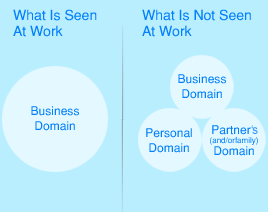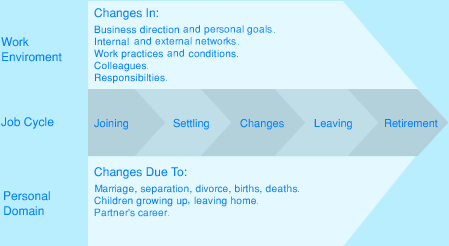Cessie Cole
Individual, Couple and Family TherapistThought Piece
Thought Piece
[Written for a business conference.]
Health – what do I have in mind? Stress, anxiety and depression-related states can show themselves in mood swings, anger, unpredictability, failing relationships and a reduced ability to work properly.
The signs? Altered sleeping, eating, drinking habits as well as less productive
concentration, time keeping, memory and performance levels.
Useful talking helps because it focuses the person on what seem to be the difficulties, thus preparing the way for overcoming them. By useful I mean clarifying one’s ideas and position when hearing one’s own thoughts voiced out loud. The skilled listener can then assist the person to prioritise, explore options and challenge the thinking so that their sense of being confused or stuck dissipates.
However, not all talking is useful, it needs to be focussed. What does that mean?
- Talking freely to someone outside the organisation, who is not influenced or judgemental about what is said and who will keep the content confidential.
- Assisting a person to handle the stages of the job cycle at an earlier point than waiting until the difficulties have reached great proportions.
- Assisting specifically with the dynamics of work, home or both. Then to examine those that are directly affecting the work situations of joining a company, promotion or demotion, group projects, authority circumstances, decision making, report writing, redundancy and retirement. In other words, the work cycle I refer to later.
What is not useful to talk about in the work context?
- Navel gazing, repeating old thoughts eternally to retain the status quo, or the use of complicated psychotherapeutic terminology/explanations.
- Tea and sympathy. Rather, empathy and challenge.
- Therapy, counselling or advice giving. Rather, creating awareness that is directly relevant for the client to equip themselves for an analysis and exploration of options.
Applications of this approach in the workplace are:
- With individuals at work;
- Groups at work;
- Team dynamics;
- Impact on relationships at home and vice versa.
To establish the approaches that are suitable, I would envisage initially meeting with
the appropriate Manager to discuss ideas and options of what might be most useful to the organisation and its employees.
Three brief examples of business-personal situations I have worked with :
The client: An MD of a company in the Leisure Industry, whose work involved unsocial hours, travelling and time spent out of various office bases as well as away from home.
The difficulty presented: Irritability and anger with staff, which was alienating him from his Managers.
Having not addressed any of the negative effects of the job stresses within his working or domestic environment, the client, instead, had an affair. This short-term “fix”, the client began to see, was not the solution, but created another part of the problem.
The work: The client’s irritability and anger at work (and at home) reduced his ability to negotiate, make decisions or notice any of his staff’s responses to his treatment of them. However, instead of splitting off his affair and refusing to see its implications, the client faced it and decided what to do. This in turn, freed him up to reorganise his work team and include their input instead of ruling hierarchically from a position of isolation and anger.
The client: A young man working in the computing industry was used to being described as dynamic and at the centre of making things happen, by both his work colleagues and partner. However, his bosses had given him verbal and one written warning for bad time keeping, missed meetings and deadlines.
The difficulty presented: This was of depression to the degree that he struggled even to get out of bed in the mornings. It was affecting his whole work performance.
The conflicting perceptions of this man were eventually unsustainable for him. Ignoring pressures to adapt his life and communicate more about resulting stress had led him into a situation of denial and pretence. A recent home move, financial difficulties and his partner wanting to end the relationship had been replaced in his mind by appearances of competence at the workplace.
The work: The need for the client to see the bigger picture as well as its separate parts allowed him to communicate his fears about not coping to his line manager. The difficulties could then be reduced to manageable parts for him to cope with. His depression lifted as he felt less isolated or pressured to appear what he was not.
The client: A female teacher felt she was in a school where her career could not progress further, but she was not able to move to another school because her husband’s bankruptcy declaration and business problems prevented relocation.
The difficulty presented: The client’s self-belief and esteem had plummeted, alongside considerable anxiety symptoms. The prospect of the coming School inspection was an immense source of stress, preventing her from working efficiently.
The work: Here, both the couple’s working lives were impacting negatively on each other. Resentment and fury were producing acrimony between them. I eventually saw the couple together to deal with the confrontation, mutual blaming and not getting beyond them to their personal senses of failure and fear about their increasing incompetence at work. By addressing some of their domestic and financial difficulties together, it freed them up to set themselves goals and networks of support in the workplace.
The diagrams below summarise the situation as I see it and guide some of the work.

